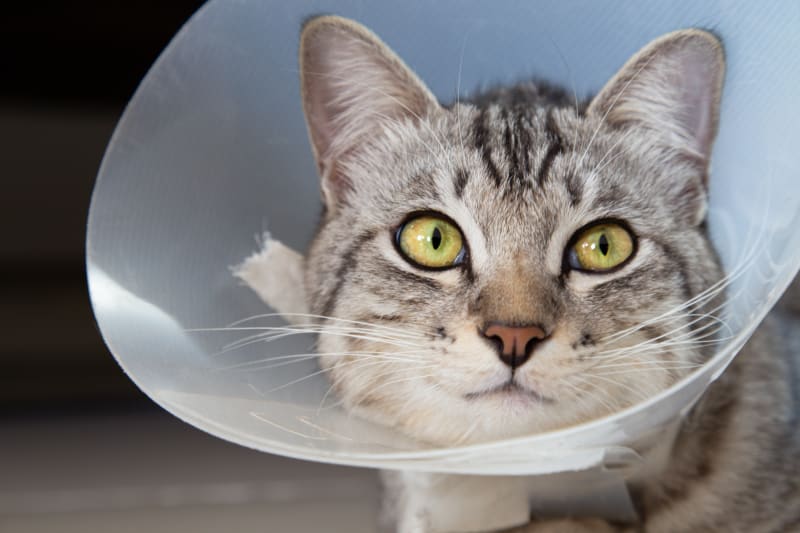The best time to neuter a cat is between 4 to 6 months of age. Early neutering helps prevent unwanted behaviors and health issues.
Neutering a cat at an early age offers numerous benefits. It helps control the pet population and reduces the risk of certain diseases. Cats neutered early tend to have fewer behavioral problems, such as spraying and aggression. This procedure also minimizes the chances of developing reproductive cancers.
Veterinarians typically recommend neutering cats between 4 and 6 months old for optimal results. At this age, cats recover quickly from surgery and adapt better. Ensuring your cat is neutered can lead to a healthier, happier life for your pet. Early neutering is a responsible choice for cat owners.
Benefits Of Neutering
Neutering your cat can prevent certain cancers. It also helps avoid urinary tract infections. Neutered cats live longer and healthier lives. They are less likely to roam, reducing the risk of accidents. This procedure can also decrease the chance of feline AIDS.
Neutering often reduces aggression in cats. It can also minimize territorial spraying. Cats become more affectionate and less likely to roam. Neutered cats are usually calmer and more sociable. This procedure can help reduce the number of stray cats.

Credit: petable.care
Ideal Age For Neutering
Neutering kittens is often done at 4 to 6 months of age. This age helps in preventing unwanted litters. Early neutering can also reduce the risk of certain health issues. It may help in managing behavior problems too.
Adult cats can be neutered at any age. Neutering adult cats helps in reducing aggressive behavior. It also decreases the urge to roam and mark territory. Older cats might take longer to recover from surgery.
Pre-surgery Preparations
Before neutering, your cat needs a health checkup. The vet checks for any illnesses. The vet also checks for infections. Healthy cats heal faster. This makes the surgery safer.
Cats need to fast before surgery. This means no food for 12 hours. Water is usually okay. Fasting prevents complications during surgery. Your vet will give you specific instructions. Follow them carefully to keep your cat safe.
Post-surgery Care
Keep a close eye on your cat after surgery. Watch for any signs of infection. Look for redness or swelling at the surgery site. Make sure your cat is eating and drinking. Limit their activity to prevent injury. Use a soft bed for comfort. Check the litter box for normal urination. Report any concerns to your vet right away.
Pain management is crucial for your cat’s recovery. Your vet may prescribe pain relief medication. Administer the medication as directed. Do not skip any doses. Provide a quiet space for your cat to rest. Avoid loud noises and sudden movements. Keep other pets away during the recovery period. Comfort your cat with gentle petting and soothing words. Follow up with your vet for any further instructions.
Common Myths
Many people think neutering causes weight gain. This is not always true. Cats may gain weight if they overeat. It is important to feed your cat the right amount. Regular exercise also helps keep cats fit. Neutering alone does not make cats fat. Good diet and play keep cats healthy.
Some believe neutering changes a cat’s personality. Cats remain friendly and loving after surgery. Neutering can make cats calmer. They may stop roaming and fighting. Playfulness and affection do not change. Neutered cats often become more relaxed. They still enjoy cuddles and games.
Cost Considerations
Neutering your cat can vary in cost. Veterinary fees depend on the clinic. Some clinics offer low-cost options. Private vets may charge more. The cost often includes anesthesia and surgery. Always ask for a detailed bill. Make sure there are no hidden fees. Some clinics may provide payment plans.
Neutering can save money in the long run. It prevents many health problems. Unneutered cats may develop cancers and infections. Treating these can be very expensive. Neutered cats also tend to roam less. This reduces the risk of injuries from fights. Less roaming means fewer vet visits. Neutering also decreases aggressive behaviors. This can save on home repairs and medical bills.
Alternatives To Neutering
Chemical castration uses medications to reduce a cat’s fertility. This method avoids surgery. Injections or implants deliver the necessary drugs. The effects can be temporary or long-lasting. This option is less invasive but requires regular vet visits. Some owners prefer this to permanent solutions.
A vasectomy is a surgical procedure. It involves cutting or blocking the tubes that carry sperm. This option makes a cat infertile but keeps its hormones. It helps in controlling the cat population without affecting its behavior. Vasectomies are less common but can be an alternative.

Credit: petable.care
Consulting Your Veterinarian
Consulting your veterinarian helps determine the optimal time to neuter your cat, typically around five to six months old. Early neutering can prevent unwanted behaviors and health issues.
Expert Advice
Veterinarians know the best time to neuter a cat. They will check your cat’s health first. The vet will tell you if your cat is ready. It is important to follow their advice. They have seen many cats before. They know what is best for your pet.
Customized Plan
Each cat is different. Your vet will make a customized plan for your cat. Some cats need more time to grow. Others might be ready sooner. The vet will decide the best time for your cat. This plan will help your cat stay healthy. Always follow the plan given by your vet.

Credit: www.fallsroad.com
Frequently Asked Questions
What Is The Best Age To Neuter A Male Cat?
The best age to neuter a male cat is between 4 to 6 months. Early neutering prevents unwanted behaviors and health issues.
Is It Better To Neuter A Cat Early Or Late?
Early neutering is generally recommended. It helps prevent health issues and unwanted behaviors. Consult your vet for the best timing.
When Should An Indoor Cat Be Neutered?
Neuter an indoor cat around 4-6 months old. This timing prevents unwanted behaviors and health issues. Consult your vet for specific advice.
How Do I Know When My Male Cat Is Ready To Be Neutered?
Your male cat is ready to be neutered around 4 to 6 months old. Consult your vet for precise timing.
Conclusion
Choosing the best time to neuter your cat ensures their health and well-being. Consult your vet to decide the optimal age. Early neutering can prevent behavioral issues and health problems. Remember, a well-timed procedure leads to a happier, healthier pet.
Prioritize your cat’s needs and make an informed decision.

Hello, this is Frank Swanson, the owner, and operator of Pet Info Hut. I created this website as a way to share my love of pets with the world. I have over 7 years of experience working with animals, and I have a passion for helping people care for their pets. I hope that you find my website useful and informative. Thanks for visiting!
